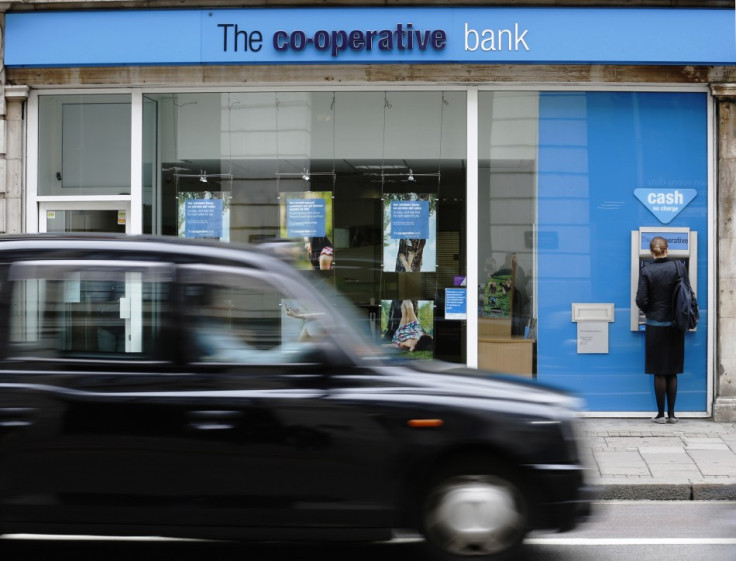Co-operative Bank Sinks to £709m Loss as Troubles Worsen

Troubled Co-operative Bank sunk to a £709.4m pre-tax loss in its opening six months of 2013 as the ethics-driven financial institution's woes deepen.
The loss, down from a £58.6m loss in the same period a year before, stems largely from a £496m impairment charge against the carrying value of the bank's loans, as well as a £165.5m writedown of IT assets and another £61m set aside to compensate customers for things such as PPI mis-selling.
It comes not long after credit ratings agency Moody's downgraded Co-op Bank and warned of its imminent default following a "bail-in" recapitalisation plan to plug its £1.5bn capital black hole by converting junior bondholders into shareholders.
"Moving forward, there is no doubt that the short-term outlook continues to be challenging," said Niall Booker, Co-op Bank chief executive.
"Whilst we have a recapitalisation plan in place that has been discussed with the regulator, there are a number of hurdles to overcome in order to secure the future of the business.
"The immediate priority for me and my new management team is on improving the capital position of the Bank through the successful execution of our recapitalisation plan."
In the fourth quarter, Co-op Bank plans to raise £1bn of its recapitalisation.
Financial regulators on the Bank of England's Prudential Regulation Authority (PRA) are forcing UK banks to shore themselves up with enough capital to buffer themselves against the impact of any future banking disaster.
As well as protecting depositors and investors, the capital requirement rules are to prevent a repeat of the 2008 financial crisis when the banking sector was propped up with taxpayer-funded bailouts.
Co-op Bank is already carving off its toxic loan assets into a so-called 'bad bank' worth £14.5bn. The assets will then be wound down or sold off.
Its recapitalisation will improve the Co-op's core tier 1 ratio to over 9% by the end of 2013. This ratio will keep rising thereafter. The PRA is demanding a ratio of at least 7% from all banks under the new regime. Currently, the Co-op Bank has a ratio of 4.9%.
"The PRA anticipated the likely scale and source of these losses when it made its assessment of the bank's capital position in June," said a spokesman for the PRA.
"Consequently, the announcement today does not affect the PRA's assessment that the Co-operative Bank has a capital shortfall of £1.5bn relative to 7% core equity capital after adjustments."
The Co-op is one of the UK's smallest banks with 4.7 million customers and a 1.5% share of the current account market. Its parent company is a household name in Britain, as the wider group includes supermarkets, funeral services and pharmacies.
A poor performance by the banking arm pulled Co-operative Group's down to a pre-tax loss of £559m.
In April, the Co-op Bank's weak capital position forced it to pull out of its bid to buy 632 branches of the state-backed Lloyds Banking Group.
© Copyright IBTimes 2024. All rights reserved.









